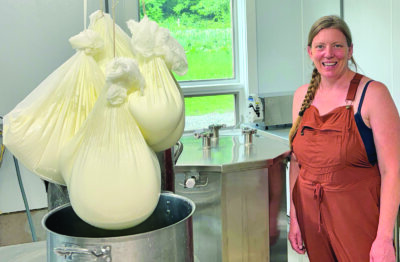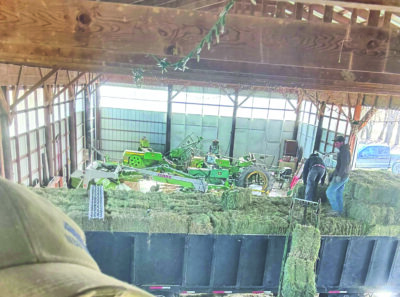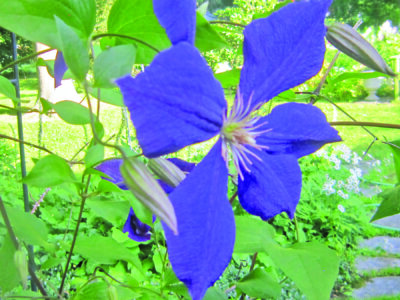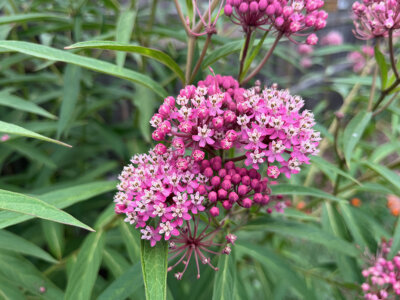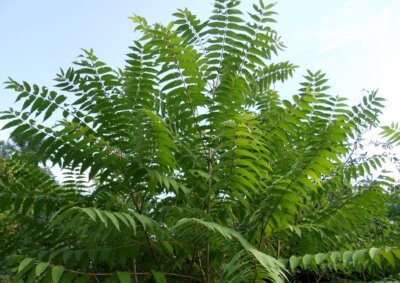Charlotte plantings part of pathway for pollinators to travel
Julie Parker-Dickinson, a master gardener and a second-grade teacher, was encouraging kids about their futures back in 2017 when she realized something: She didn’t feel she was doing anything to ensure a bright future would still be there for them.
She decided to plant a garden at Quinlan’s Covered Bridge in Charlotte, where she lives, the first of many around town that she would fill with native species. The idea was to build a better food source for local pollinators, who play a vital role in helping plants reproduce. One day, she heard from Bethany Barry, who wanted to help pollinators in Addison County.

Volunteers working on a pollinator garden in Charlotte at the corner of Philo Road and Spear Street in May 2023.
Now both Parker-Dickinson and Barry are part of Pollinator Pathway, a network of volunteers across 18 states who plant, track and locate gardens of native, non-invasive plants and flowers. Their mission is to reduce the distance many pollinators like bees and butterflies must go to get nectar and pollen. The gardens, in effect, form a highway for them. Parker-Dickinson runs the Charlotte effort, Barry the one in Addison County — two of six in Vermont.
The four principles of the pathways, said Barry, are to remove invasives, plant natives, abstain from pesticides and rethink your lawn.
More extreme heat caused by increasing climate change makes it more tiring for pollinators to travel around. At the same time, they must travel longer distances than they’re used to because of how many lawns and homes have replaced natural landscapes.
Monarch butterflies might be able to fly 2,500 miles when migrating, but Parker-Dickinson said the average butterfly is probably going no more than a mile to find food.
“The pathway is meant to be a connector,” she said, comparing it to a grocery store where there would normally be a food desert.
Parker-Dickinson has planted gardens by Monkton Central School, on a corner on the way into Charlotte from the south and at the Charlotte Library. One project she’s currently working on is at the school, where she teaches and is maintaining a strip filled with native plants, sunflowers and zinnias in the parking lot.
Some plants she uses include Culver’s root, butterfly weed, mountain mint and bee balm — all native to Vermont.
Parker-Dickinson said there are 45 million acres of lawn in the U.S. “If a portion was committed to pollinators, we could really do something about the climate crisis,” she said.
“Nobody gets paid for this. It’s just something we can do to help,” she said. “It’s been really rewarding in terms of the whole community to take pride in.”
Barry said bringing people in her community together has been an important part of the project. “It’s all about educating ourselves and others,” she said. She works with nine towns in Addison County.
Barry has given presentations and webinars across the state about pollinators and native plants. That’s on top of working on a pollinator garden next to Porter Medical Center in Middlebury and a garden in Weybridge near the Pulp Mill Covered Bridge.
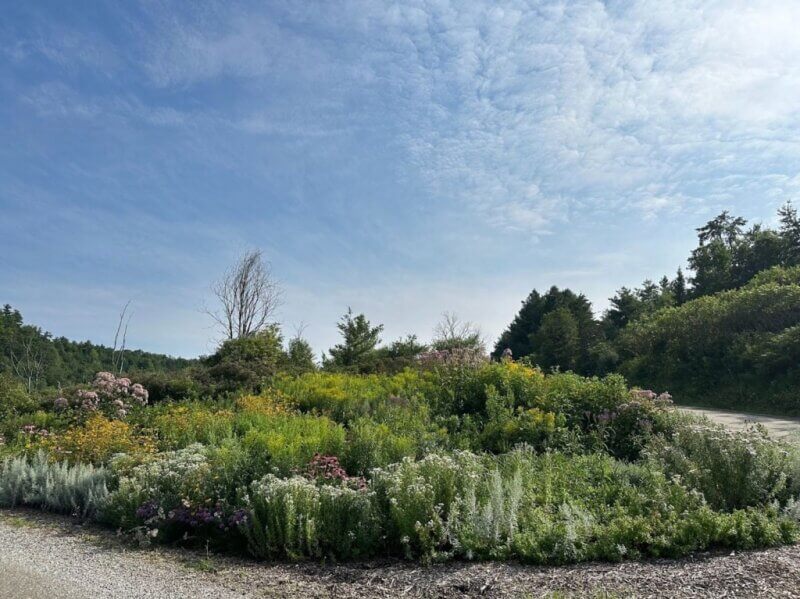
The garden at Quinlan’s Covered Bridge in Charlotte in August 2023.
“If I was inside … I would be missing out on what’s happening with nature,” Barry said.
One thing she’s noticed through getting out in the garden is a decline in monarch butterflies, something Parker-Dickinson and other Pathway members also described.
“I’ve heard a lot of despair about our planet, about what’s happening, but then I bring it back to what can I do right here, right now, and this is making a difference,” she said. “It may not show to anyone else, but I know that I’m creating a resting place and food and habitat and adding to the biodiversity.”
Debra Sprague, who helps maintain the Monkton Pathway, believes there are aesthetic benefits to growing native and wildflower-filled gardens instead of curating lawns or sewing gardens with invasive species.
“The thing with native plants is, you have to pay attention to what’s good for the pollinators, and that means not pulling everything out in the fall and making it really neat and tidy,” she said. “It should be messy, and some people don’t like messy.”
Similar to Barry, she has found that paying closer attention to pollinators has strengthened her success in the garden.
“The wildflowers in May, looking for those, watching for insects, the different butterflies and bees and all the different creatures out there,” she said, “really just being outside in the garden makes you see more of those things and appreciate them.”
Denise Greene and Melissa Jordan of the Lamoille County Pollinator Pathway are approaching their second growing season. Greene is based in Hyde Park, Jordan in Morrisville, and both have backgrounds in gardening, maintaining land and even worm farming.
“As we continue along, Lamoille County Pollinator Pathway will continue to grow and have opportunities to transform public spaces as well as private spaces,” Jordan said. “There’s a new wave happening, a new wave of thinking.”
The Lamoille pathway has provided garden tours, advice for starting gardens and recommendations for plant and soil care. Greene said she’s even shown people how to solarize weeds — putting plastic over a garden bed, field or lawn and leaving it for the summer, effectively cooking the weed seeds and providing a clean slate in the fall.
“We’re really available for any businesses or property owners or municipal properties to help work, to give volunteers or to give technical advice,” she said.
Their group works with Peter Danforth, director of the Lamoille County Conservation District, on environmental advocacy.
They’ve done lots of planting around Oxbow Park in Morrisville and have converted Elsa French Park in Hyde Park from mostly lawn to freely growing wild species. Greene said with native meadows in place, prairie grasses that have robust root systems can better absorb rainwater.
Greene and Jordan emphasize that anyone can do it — even people in apartments without their own green spaces. That’s the reason why their group lets apartment residents register potted plants as part of the local pathway.
“We live in such a beautiful and diverse planet, and we just want to do everything we can to keep it that way and not just disappear. And that means holding people accountable,” said Greene. “Some people like politics, and some people like just to plant flowers.”
(Via Community News Service, a University of Vermont journalism internship.)
Related Stories
Popular Stories
If you enjoy The Charlotte News, please consider making a donation. Your gift will help us produce more stories like this. The majority of our budget comes from charitable contributions. Your gift helps sustain The Charlotte News, keeping it a free service for everyone in town. Thank you.
Andrew Zehner, Board Chair




